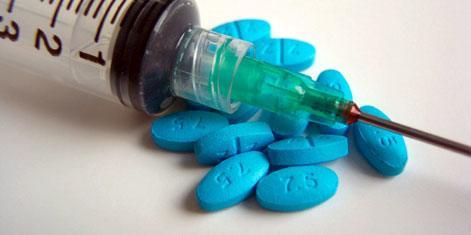
A strange disease has struck members of one family in Odzi district, Manicaland Province leaving the entire family paralysed.
BY OBEY MANAYITI
Several children of the Gwizo family in Mapembe area in Odzi are suffering from Dechenne Muscular Dystrophy (DMD), a disease which causes paralysis.
DMD is a hereditary disorder that involves muscle weakness and is caused by a defective gene for dystrophin (a protein in the muscles).
The disease usually affects the muscles of the hips, pelvic area, thighs, shoulders, and calf muscles. The muscle weakness also occurs in the arms and neck among others.
The other physical symptoms include an awkward manner of walking, at a young age characterised by frequent falls.
Five members of the Gwizo family have been admitted at the District Outreach for Care and Support (Docas) — an organisation linked to the Apostolic Faith Mission in Zimbabwe church and was founded by the Odzi-based pastor Togara Mapingure.
Mapingure has a vision to turn Docas into a centre of excellence for the care of people with DMD.
- Chamisa under fire over US$120K donation
- Mavhunga puts DeMbare into Chibuku quarterfinals
- Pension funds bet on Cabora Bassa oilfields
- Councils defy govt fire tender directive
Keep Reading
He said since he started the organisation three years ago, 22 people have so far consulted the organisation from across the country.
“We have a Muscular Dystrophy programme that has been running for three years and under that programme we hand out assistive devices such as wheelchairs to the affected,” said Mapingure.
“During our course of duty, we came across three children from one family who were curiously all paralysed and evidently needed wheelchairs. Their names are Knowledge, Tawanda and Learnmore Gwizo from Mapembe area in Odzi.
“The Army Medical Services responded to our calls for assistance and did the preliminary diagnosis of the children and established that it was Muscular Dystrophy,” said Mapingure.
“This is a genetic condition which is inherited from the mother but makes the male child suffer on a 50-50 probability; for example, in every two children chances are that one will be affected and in the girls it will be a 50-50 probability.
“The condition is incurable and they have to rely on physio-therapy and occupational therapy,” said Mapingure.
In Zimbabwe there is no institution to provide for people with the condition and few health experts can handle the condition.
Well-wishers from a US-based Lutheran church in Anoka, Minnesota, comprising medical personnel, and information technology and civil engineering offered a helping hand to Docas in its initiative.
The team was headed by a senior pastor of the Lutheran church in Anoka, Minnesota, Jon Haakana who said they were interested in the noble idea being championed by Mapingure.
“One of the group members was here in Zimbabwe some time ago and met pastor Mapingure and was impressed with his work,” said Haakana who was at Docas offices in Odzi last week visiting five of the Gwizo family members admitted there.
They are Farai (17), Knowledge (16), Tawanda (14), Blessing (12) and Learnmore (10). Seven more members of the family are reportedly still at home because their condition is still manageable.
“When he came to our congregation, we had an opportunity to hear his vision and our members of the church liked the idea.
“I know they will continue with their support and I see that relationship continuing for quite a long time,” he said.
One of the visiting medical experts Peter Karachunski said no medication has been found yet for DMD since it was discovered 200 years ago.
“We are teaching care-givers here to provide immediate assistance to the boys, including helping them exercise.
Karachunski said the boys spent most of their time sleeping because they don’t get enough ventilation overnight.
The condition usually starts at a tender age of 10 with severe symptoms and normally results in death after a few years if not properly monitored.
The visiting medical experts also held a training workshop with nurses and physiotherapists on the care of people with Muscular Dystrophy.
Shupikai Mapingure, wife to Pastor Mapingure, said they are all volunteering their services to Docas and hope the effort will be positive to the community.
“We started this programme in 2010 after Pastor [Mapingure] had received a calling from the Lord directing that he should help vulnerable people in Odzi,” she said.
“We all work as volunteers here and there are about 10 of us. We sold our family car to get a commuter omnibus which is now doing Docas work.
The care-givers also expressed gratitude to the gesture by the visiting team from the US and said they hope that the work of assisting people with DMD will grow and reach out to the entire country.










